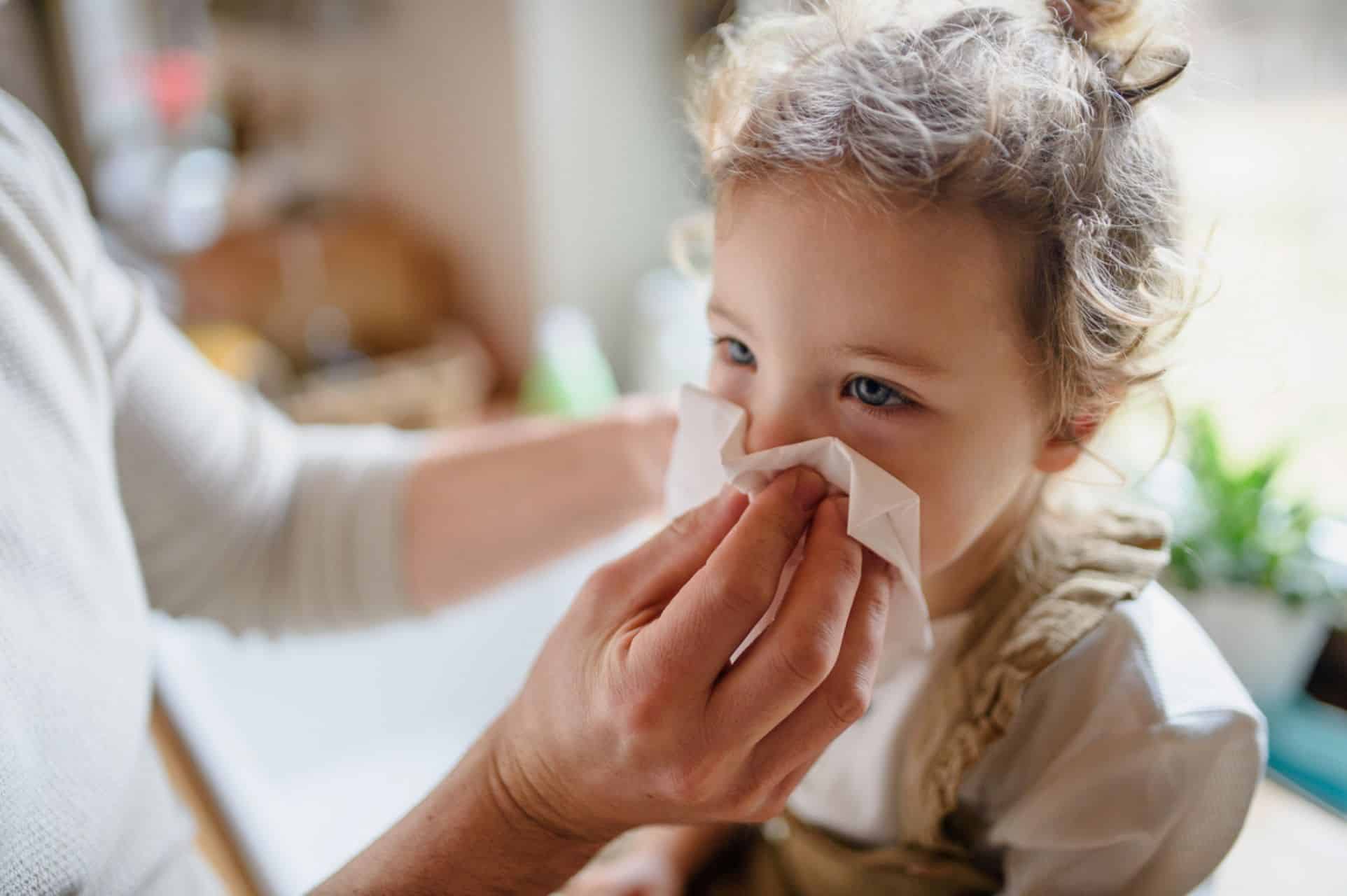Health
3 min Read
5 Things Every Parent Needs To Know About RSV

November 16, 2022
Health
3 min Read

November 16, 2022

Just when it seemed we were turning a corner in the fight against covid, healthcare professionals are raising the alarm bells about another virus. This one has been around long before covid, but has surged in activity particularly amongst young children, causing chaos in hospitals across the country and leaving many parents worried.
Respiratory Syncytial Virus (RSV) is a common respiratory virus. According to the Canadian Pediatric Society almost all children get the virus at least once before they are two years old. Or at least they did pre-covid.
During the pandemic, strict physical distancing and mask measures led to fewer babies and younger children being exposed to RSV. With restrictions lifted, hospitals are now seeing an above expected surge in RSV cases amongst young children creating overcrowding and historically high wait times in pediatric hospitals across the country.
Here’s what you need to know about RSV and how to protect your family.
In adults and healthy children, RSV may produce symptoms resembling a common cold including a runny nose, sore throat, cough, and fever. While many infections are simple colds, children under the age of two and kids with pre-existing lung conditions such as asthma are at greater risk of severe illnesses such as pneumonia or bronchiolitis (inflammation of the small airways of the lungs).
RSV is spread in the same way as a common cold. It can be spread through droplets when someone coughs or sneezes. It can also live for several hours on surfaces such as toys or door knobs. So when a person touches something that has become contaminated and rubs their face, they can become infected.
People infected with RSV are usually contagious for three to eight days and may be contagious one to two days before they start showing symptoms. However, according to the CDC, infants and individuals with weakened immune systems may continue to spread the virus for as long as four weeks, even after symptoms have disappeared. (https://www.cdc.gov/rsv/about/transmission.html)
Regular hand washing, physical distancing and wearing a mask are all effective ways to avoid contamination.
Most cases of RSV can be treated at home. A cool mist vaporizer is useful to keep air moist and make breathing easier. A saline spray can help to keep nasal passages clear. For infants under six months, a snot sucker can help to clear the nose. Maintain hydration and manage fever with acetaminophen or ibuprofen.
In some severe cases of RSV, babies and young children may experience a lack of oxygen causing apnea (pauses in their breathing). If your child is suddenly lethargic, is wheezing or having difficulty breathing, or if their lips turn blue, head to the hospital right away. Severe cases of RSV can result in pneumonia or bronchiolitis. Kids may require oxygen, IV fluids or medication to help open the airways.
This article is for information purposes only and is not a substitute for professional medical advice. For up to date statistics and information on RSV, visit Health Canada.